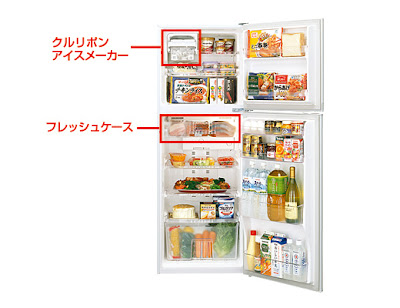There's an episode of Seinfeld where Jerry is obsessed with a restaurant that opens within eye-shot of his apartment. He feels bad for the Pakistani operator because he's opened an establishment in a spot where one business after another seems to fail. Jerry says, "it's like some sort of Bermuda Triangle of retail."
In my neighborhood, there seem to mainly be three types of businesses. First, there are the often-trafficked places which are clearly meeting local demand and continue to thrive. Second, there are small places which no one ever seems to patronize yet remain in business regardless. I'm pretty sure these places operate at a loss as a tax dodge for the people who reside in the same building as the business. Third, there are the places like the ones Jerry Seinfeld refers to.
An import goods shop (pictured above) opened recently about 2-3 minutes from Minami-Asagaya station and I'm almost certain it's firmly fixed in success-free zone. The problem is that any shop which is off the main shopping street has to rely on either people happening by and noticing the shop or on advertising drawing people in. The former seems unlikely since most people aren't looking to shop in that location. The area around Minami-Asagaya station has a bank, the main ward post office, a Mister Donut, a pachinko parlor, a bakery, and the ward office itself. The traffic that comes in and out of that station is about quick snacks or doing serious business. It just isn't a hot spot for shopping.
It's somewhat of a shame that the shop is likely doomed. It's actually very nicely-designed, clean, and well-laid out. Most shops in relatively smallish spaces tend to be very cramped as the proprietors try to shoehorn in more aisles than really belong there. Any aisle where two people can pass one another without cramming themselves up against the products on either side is lavish by small shop standards.
The shop is called "Base-1" American Import Store and has the tag line "U.S. Real Life". It has a less than subtle American motif with a couple of cacti on either side of the entrance and a modified U.S. flag hanging over the doorway though it is still relatively tasteful looking. It's well-lit and all the products are displayed very neatly.

I'm not sure how it represents "real life" though since the shop's selection is very limited. Most of one side is junk food and most of the other side is laundry and cleaning products. There's a smattering of condiments and novelty products as well. Kitchen implements with comical figurines like a happy plastic chef on top of a whisk, for instance. I guess the proprietor believes we Americans love our clean clothes, novelty items, and junk food. I guess one out of three isn't bad.
A lot of the items (but not all) carried by the shop appear to be purchased at Costco and then given a price boost. My husband reckons that they're giving the items an increase between 67%-100% over the Costco prices. If you are looking to just pick up one thing or another, that's not so terrible since a trip to Costco for a few items isn't worthwhile but, if you generally would buy a lot of things at Costco, this is highway robbery.

When my husband and I were there around 4:00 p.m., there were a few other women (likely housewives) milling about but we were the only ones who bought anything. I picked up a box of Celestial Seasonings maple vanilla tea for about ¥500. As far as I know, this is one of those things you can't get at places like Costco though you probably can pick it up at an import chain store like Sony Plaza in one of the more retail-dense areas in Tokyo.
When we checked out, they gave us a little sticker with the name of the shop on it and a free sample of something called a "Swiffer" cleaning cloth which will supposedly do a superior job of cleaning up dust. The sample packets were actually being sold next to the cashier and that seemed a little dicey as I don't think they were meant to be sold. It's a nice little gesture to give away freebies but I'm not sure that there's going to be much in such a shop for the locals in the long run. I'm guessing one of the reasons that they focus heavily on cleaning products is that housewives may be more attracted to picking up imports of such things on a regular basis.
I wish I could say I'll be patronizing it enough to help such a store survive but their prices are too high for anything besides an occasional indulgence. Even a western-lifestyle-living person like myself has to be conscious of the relative merits of an American product over a Japanese one when looking at much higher prices. Additionally, I just couldn't consume enough of the type of products they carry to buy them on a regular basis and I think places like this are doomed to fail without regular customers.






























